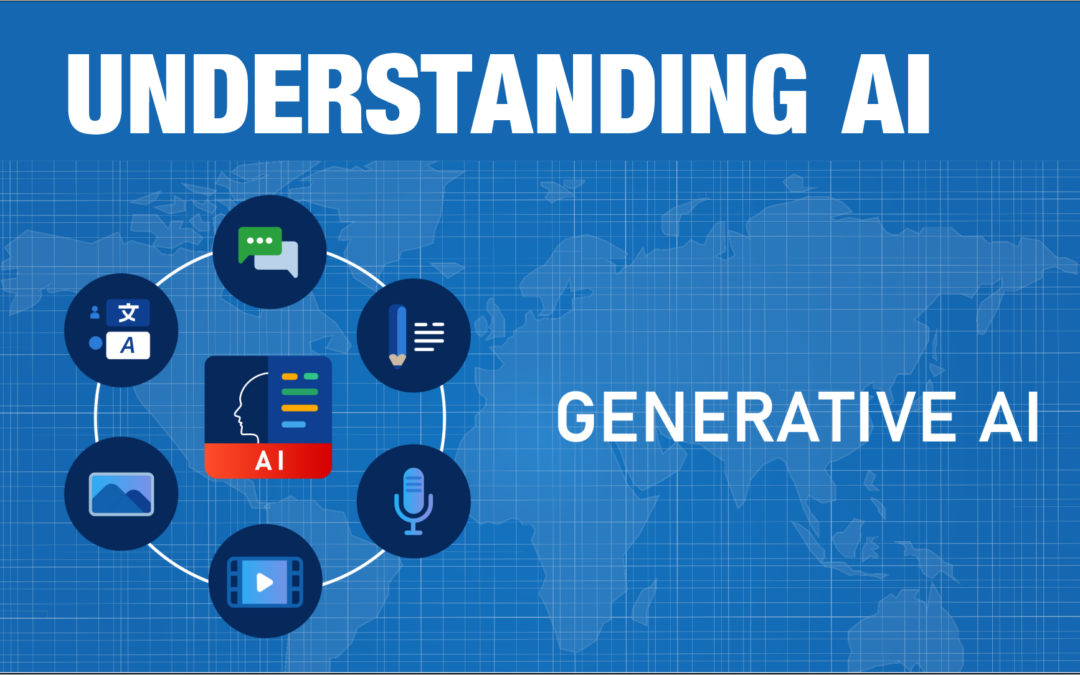Not AI In General, But Generative AI
At our agency, we’ve been using AI for some time as a tool to assist in search and in curating and writing content. We need to draw a distinction between AI in General and Generative AI, because we still get some negative comments on post regarding its use. Many feel is a tool with a dangerous downside. We all recognize that AI in general has a “potential” downside if not properly (hate to use the word) regulated and/or controlled. But, it is here to stay, and includes some magnificent tools that will enhance the future of many. I can only begin to imagine the intelligence level of the next generation that will enter life and live with these tools during their journey through life.
A Groundbreaking Force
In the rapidly evolving landscape of digital innovation, generative artificial intelligence (AI) has emerged as a groundbreaking force, transforming the way we create and interact with content across various mediums. From the arts to technology development, generative AI has unlocked new possibilities, enabling the generation of novel content that includes text, images, music, and more. With these tools, the amount of new information being curated and distributed is multiplying rapidly.
However, this revolutionary technology has also sparked a spectrum of emotions, ranging from awe to fear and skepticism.
Misunderstandings and Concerns
At the heart of the hesitation surrounding generative AI lies a blend of misunderstanding and concerns about its implications. It’s crucial to acknowledge these fears while also illuminating the vast potential and daily benefits of generative AI. This technology, powered by models like GPT-4 and DALL-E, is not just about creating content; it’s about augmenting human capabilities, fostering creativity, and solving complex problems more efficiently. I’m grateful to be alive and still working during this time. AI has sparked the dawn of a new age for digital marketing.
It’s Already woven Into the Fabric or Our Lives
Generative AI has already woven itself into the fabric of our daily lives, from enhancing search engine results to personalizing user experiences online. Its applications extend beyond content creation to include code generation, artistic endeavors, and even scientific research, offering tools that can streamline workflows and inspire innovation.
Google Calms Fears
In a recent (March 2024) algorithm update to its search engine, Google put to rest the fears of many content creators who are using language assistants like ChatGPT and other similar AI tools. As well, many were still on the sidelines, afraid to use AI for fear Google may eventually give lesser ranking to AI generated content. You can read more about Google’s AI focused algorithm here. Google has revamped its algorithms to favor content that genuinely serves the user’s interest, ensuring a richer and more rewarding search experience. The use of AI to gather and distribute said content is certainly acceptable.
Keeping the Dialogue Going
Understanding and addressing the ethical considerations of AI development is paramount. It involves ensuring transparency, accountability, and the integration of safeguards to mitigate misuse. By fostering an informed dialogue about the benefits and challenges of generative AI, we can navigate these waters together, harnessing its potential responsibly and creatively.
It’s Not Just About The Technology – It’s More About How We Use It
As we continue to explore the possibilities of generative AI, let us approach it with an open mind, recognizing its role in driving progress while staying vigilant about the ethical dimensions of its application. The future of generative AI is not just about the technology itself but how we choose to integrate it into our lives and societies, enriching human experience and potential.

